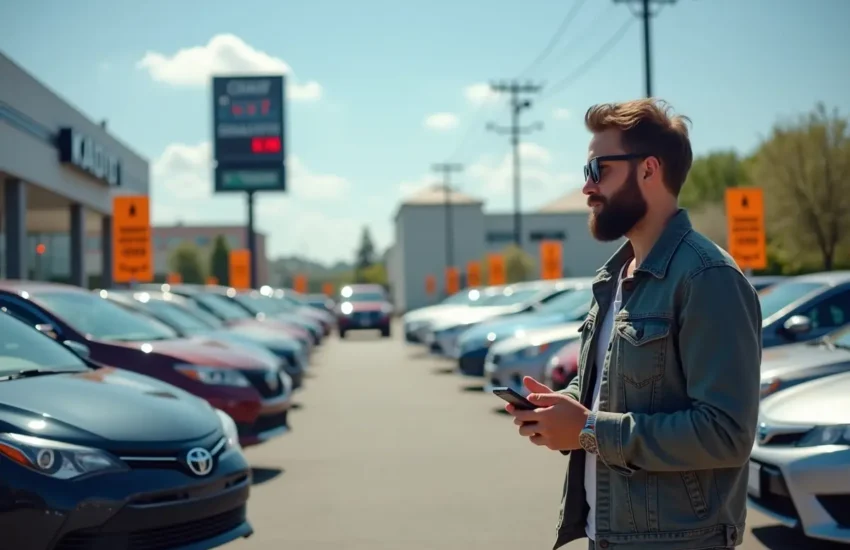Should The Local Government Require Drivers To Have Car Insurance?
It is mandatory in most states in the U.S. to have auto insurance. If you get pulled over without proof of insurance, you could suffer consequences such as fines or a suspension of your license. Many people may question why auto insurance is a requirement in their state. Sometimes we go through life and never even need our insurance.
If you don’t get into an accident of any kind, you’ll typically never have to file a claim. This means you are paying for something you possibly never use, and this makes some people upset. This opens up a whole discussion on the ethics of auto insurance and whether the government should have the right to force you to buy insurance.

We’ll dig into whether mandatory auto insurance is a reasonable law, whether it goes against the U.S. Constitution, and why having auto insurance as a requirement has saved millions of people from physical, emotional, and financial trauma.
What are some of the reasons insurance is legally required?
Insurance is required in many areas of the U.S. because it guarantees that people who get into an accident will have a way to pay for medical expenses and fees to fix their car. If everyone went around without auto insurance, we would all have to pay for the damage we cause others in car accidents.
Most people simply don’t have the money to do this, and the result would be victims of car accidents going without medical attention and losing their vehicles to severe damage. Car insurance takes some of those worries away, depending on your policy.
The law doesn’t mean there isn’t still discussion on the legalities of insurance and what insurers have to pay for, though. Because car insurance companies don’t want to spend more than they have to, there is sometimes a dispute between customers and insurers on who is going to pay for what after an accident.
The issues discussed here still don’t answer the question of whether the government should be allowed to tell you to buy something. To get to the bottom of this, we have to cover the U.S. Constitution and the basic rights all citizens have in the document.
What is constitutional and what isn’t in the US?
The U.S. Constitution was created with the intent to lay out the basic rights all Americans have from birth. Freedom of speech and religion are great examples of the rights the government can’t infringe upon. The original lawmakers in this country decided what is constitutional based on what human beings should be allowed to do.
Driving a motor vehicle is not a right. There weren’t cars being driven on American roads back in the 18th century, so there was no way driving could be included as a right. Since driving is not a right in the country, the government has every right to regulate it in whatever way they think is correct to keep people safe.
Lawmaking is supposed to help society. It sometimes asks citizens to sacrifice something in their personal lives for the greater good. It is simply the right thing to do. There are millions of people living in the U.S., and laws are in place to create the best life possible for everyone.
Laws don’t always work out fairly, though, such as when laws affect some sectors of society more than others. Poor people are going to struggle to pay insurance premiums more than rich people. This means the government might consider helping those who can’t afford their insurance.
There are states like New Jersey that have dollar-a-day car insurance for low-income individuals. This will help prevent people from choosing to skip buying insurance due to their lack of funds.
These people still won’t have the comprehensive coverage that richer people might have, and this gets into a discussion on whether something is ethical if it disproportionately affects one group of people. Is auto insurance unethical under these premises?
Is auto insurance ethical?
This is the ultimate goal of the discussion and a huge issue when lawmakers are deciding what is legal and what isn’t. It’s why people get so emotional when discussing the ethics behind topics like same-sex marriage and abortion. If we don’t talk about what’s ethically right and wrong, there is no purpose behind the laws made in this country.
Using this basis for auto insurance, we could argue that it is entirely ethical to force someone to have auto insurance.
The purpose of auto insurance is to protect people from the damage that happens to their bodies and their vehicles after an accident. If you crash into someone and don’t have the money to pay for their injuries, what’s going to happen to the victim? It’s certainly not ethical to force the victim to pay for their own damages when you caused them.
Recovering From Pain and Suffering
There has to be a way for the victims of an accident to recover from their suffering. This is why it is ethical to force everyone to have a way to pay for the pain they have inflicted on someone else. Insurance is a way to force people to take responsibility for their actions. This makes it ethical to force people to buy auto insurance.
The way auto insurance works in this country can still be difficult for people in certain income classes to navigate.
For example, many of the professions where people make good money, like being an IT professional or another type of computer programmer, allow for cheap auto insurance in 2022 because they are remote jobs. Many of the lower-income professions, like food service, require you to drive to your job.
Auto insurance companies could find more ways to help those who are in these income brackets to overcome their difficulties. This would make the ethics behind insurance a whole lot easier to talk about.


